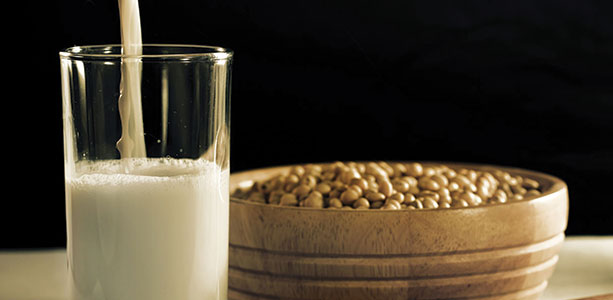Muscle Growth, Fat Loss
As a long-time trainer, I've learned a LOT of lessons about building muscle and losing fat. But nothing beats the learning curve of my first year of training. I didn't always make good progress. In my first year of training, I made a lot of mistakes and learned a lot of things the hard way. I also did some things quite right completely by accident! Have a read through some of the most critical lessons I learned in the very first year of my training career.
Click Here to Get Best Fat Burning Furnace Guide Now!
IN THE BEGINNING...
I wanted nothing more than to get big and strong. I had been an endurance athlete all through high school (cross-country running, speed skating, skiing) but wanted to make a change. I was 17 years old and skinny and jumped into weight training with both feet. I saved up some money, bought the Cybergenics supplement program (mistake #1! - basically that was just an expensive multivitamin) and started training. It was June of 1991, just heading into summer. I had a good program and I started getting stronger right away but wasn't really gaining much muscle. I was, however, getting absolutely ripped to the bone! By the end of the summer, I still weighed about 150 lbs soaking wet (right where I started 4 months earlier) but I swear I was about 4 or 5% bodyfat. When you can see the division line between your upper pecs and lower pecs without flexing the chest, you know you're at low bodyfat!
LESSON #1
I wasn't eating NEARLY enough or frequently enough and wasn't getting enough protein. I would rollerblade or bike to the gym first thing in the morning and do my workout, eating nothing immediately after training. I would rollerblade home then eat a bowl of cereal. Then I would go to work as a lifeguard the rest of the day, eating maybe once or twice more that day with my largest meal being dinner.
Then It Was Off To University...
Having just graduated from high school, I enrolled in university that fall. I had learned my lesson about not eating enough and I was determined to make up for it. And make up for it I did...with cafeteria food! Some people drink too much their first year of college - I ate too much. Not to knock the food service there, but I'm just sure they deep-fried the salad. To show you my knowledge of nutrition at the time, I would (in the interest of trying to keep fat levels in my diet down) order fried eggs and cut out the yolks, eating only the whites (which were shiny with overused cooking oil). All this never realizing that I would have been better off cutting off the whites and eating the yolks (that's where the fat-emulsifying lecithin and the majority of the good nutrients in the egg are!). Eight months later, at the end of my first year of school, I was 70 pounds heavier, probably about half of which was actually muscle mass. At one point, I sat down and calculated my caloric intake on some of my "big eating" days and found it to be almost 9,000 calories per day!
LESSON #2
When I learned my lesson about eating more to gain muscle, I didn't learn the lesson that you can eat WAY too much and you can easily eat the wrong types of foods. Sure, I got big and strong, but I probably went from 5% bodyfat to 15 to 20% bodyfat at the same time. NOT the results I was looking for! What I needed to do was eat more, certainly, but also eat a better quality of food. That, plus I'm sure all the "Weight Gain 3000" type of supplements I was taking didn't help matters! Looking back on the ingredients, it was mostly cheap milk protein and maltodextrin (a high glycemic, cheap carb source).
Training At University...
As I was eating more at University, I also ramped up my training. I would try and do more and more sets and use more and more weight. Because I was eating so much more, I was still making great progress! Plus, being then 18 years old, I could beat the tar out of myself in the gym and still recover from it pretty much without a problem. I was seeing increases in strength and bodyweight on almost a daily basis. But then something happened...something that opened up my eyes...one workout I was in the gym for almost 2 and a half hours!
LESSON #3
I was training WAY too long and with too many sets. I was still making progress but only because I was eating so much. Little did I know, I could actually make BETTER progress by cutting my training time WAY down. From that day on, I always stopped my workouts at the 1 hour mark, no matter where I was at in the program. And it did wonders for my results. I think the week after I started cutting back, my strength shot up and my bodyweight went up 10 pounds. THAT opened my eyes. In the Spring Semester, I tried a program that, if you've been training awhile, may be familiar with: Serious Growth by Leo Costa. At that point, I started training twice a day, six days a week, but only 45 minutes per session, at the most. Still eating a ton of food every day, I made excellent progress with this system and learned about the benefits of keeping your eyes on (and cycling) training volume.
Click Here to Get Best Fat Burning Furnace Guide Now!
But I Totally Neglected Cardio Training...
At the start of the eight months when I was furiously trying to increase my bodyweight, I had read that when trying to gain muscle, you should reduce cardio training. The aerobic work could burn up calories that could be used by the body for building muscle and might interfere physiologically with the muscle-building process. Well, I took that a little too far and cut cardio training completely out. My thought was, I was doing cardio in the summer (blading to the gym and back) and didn't gain any muscle. When I was endurance training, I didn't gain any muscle. So maybe cutting it out was necessary. So I didn't even hardly walk up flights of stairs unless I had to.
LESSON #4
Too much cardio training (especially long-duration cardio training) CAN interfere with muscle growth, sure, but as I've learned since that time, SOME cardio training should always be a part of any mass-building program. The key is to do the RIGHT kind of cardio training (i.e. interval training, which can actually help the muscle-building process). Let me put it this way, it's nice to be big and strong but when you're big and fat and strong and lose your breath going up a flight of stairs, you're not exactly at the pinnacle of health. Plus, think of it is this way...you NEED good cardiovascular functioning when training for muscle mass. What pumps blood and nutrients to the muscles? What helps you recover faster in between sets? Cardio and muscle-building are not mutually exclusive concepts. I include it in ALL my muscle-building programs now.
What Happened At the End of the School Year?
Well, at that point, being big and strong but big and fat, I decided I needed to burn off of the excess (the old bulk-and-cut concept). But then I made a HUGE mistake. I went back to similar habits that got me lean the previous summer. I didn't eat nearly enough to support the muscle mass that I had built and I didn't eat enough protein.
I also started running again, which at this point having not done any cardio training for 8 months, was a HARD lesson to learn. Imagine going from being a 150 lb cross-country runner who could do 5 km in about 15 minutes to being a 220 lb weightlifter who couldn't even jog slowly for more than 3 minutes straight! Now, even though I was TRYING to do long-duration cardio, it actually resembled interval training more than anything because I had to stop and walk every few minutes. As I got in better cardio shape, I started running longer distances straight through (I would have been better off sticking with the intervals - little did I know!). And I did lose weight and did lose some fat but I lost a LOT of muscle along with it. Nothing is more depressing than losing what you've worked so hard to build. I didn't lose all of my muscle and strength but it was enough to set me back.
LESSON #5
What you should eat and how you should train are actually fairly similar when you're trying to build muscle or burn fat. The main differences lie in how much you're eating and training variables such as rest periods and cardio frequency. You still need to eat a lot of protein regardless of your goals and you still need to lift heavy, even when on a fat loss program (it's how you tell your body that it needs to hold onto muscle). Increasing cardio frequency, eating fewer calories and decreasing rest periods in between sets will get the fat burning process moving in the right direction. Don't starve yourself or go nuts by dramatically increasing your training workload.
So What Happened In My Second Year Of Training?
Click Here to Get Best Fat Burning Furnace Guide Now!
-
5 Best Ways To Lose Weight
-
Fat Burning Furnace - Lose Body Fat Exercise Very Little Daily!
How to Lose 26 Pounds in 7 Weeks! Do you want to lose body fat exercis
-
How To Lose 85 Pounds - Get A Faster Metabolism That Melts Fat Every Day With This Program!
Click Here Now to Download The Fat Burning Furnace System & Try Un
-
Targeted Weight Loss
Most people that are aiming to follow a weight loss process
-
Fat Burning Secrets - Where to Begin with Burning Fat
It is definitely not easy to lose weight, but it is something that has
-
What is Chiropractic Care and Basic Methods Employed to Cure Diseases?
A chiropractor is a professional who knows how to relieve pain that o
- DON'T MISS
- Common Procedures Of Bariatric Surgery
- Fat Burning Furnace - Lose Body Fat Exercise Very Little Daily!
- A Healthy Body And A Healthy Mind Is The Correct Approach To Enjoy A Healthy Life
- Why Hydroxycut Is Considered As The Best Diet Pill?
- Fat Burning Furnace - Lose Weight Fast without Killing Yourself at the Gym!
- Weight Loss Tips
- Attitude: Your Weight Loss Secret
- Exercises For Your Hips - Shrink, Strengthen, & Tighten Those Hips
- Weight Loss: Have You Given Yourself Permission To Succeed?
- Essence of Garcinia Cambogia Pills




